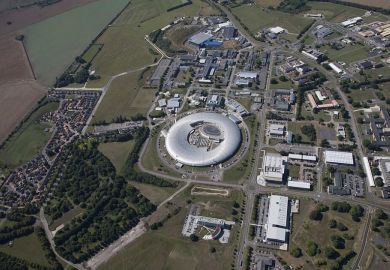Does mathematics have an existence independent of our physical world? Do mathematicians discover theorems, rather than invent them? Such questions have exercised the minds of philosophers and mathematicians since the time of Plato, and many books have addressed the issues.
What is unusual and topical about this book is that it records a dialogue between a mathematician, Alain Connes, and a biologist, Jean-Pierre Changeux. Each is an international authority in his field and both are professors at the Coll ge de France, Paris, so that they speak from first-hand experience and the intellectual level is high. As a neurophysiologist Changeux is particularly interested in the structure and organisation of the brain. He is intrigued by the capacity of the brain to handle the kind of sophisticated intellectual abstractions represented by mathematics, and his dialogue with Connes is an attempt to get to grips with this problem.
Most mathematicians would agree that their subject has evolved from the traditional disciplines of arithmetic and geometry. We have built an elaborate superstructure on these twin foundations and so the nature of "mathematical reality" can be adequately dealt with by posing basic questions about the integers 1,2,3... and about the Euclidean geometry of triangles, circles, and so on. Connes is an unabashed Platonist. For him there is an "archaic mathematical reality" represented by objects such as circles or integers, which has an existence, independent of experience or of the human mind. One practical consequence of such a belief, already adopted by the National Aeronautics and Space Administration (Nasa), is that mathematics provides the best form of potential communication with any extraterrestrial intelligence.
Any mathematician must sympathise with Connes. We all feel that the integers, or circles, really exist in some abstract sense and the Platonist view is extremely seductive. But can we really defend it? Had the universe been one-dimensional or even discrete it is difficult to see how geometry could have evolved. It might seem that with the integers we are on firmer ground, and that counting is really a primordial notion.
But let us imagine that intelligence had resided, not in mankind, but in some vast solitary and isolated jellyfish, deep in the depths of the Pacific. It would have no experience of individual objects, only with the surrounding water. Motion, temperature and pressure would provide its basic sensory data. In such a pure continuum the discrete would not arise and there would be nothing to count.
Even more fundamentally, in a purely static universe without the notion of time, causality would disappear and with it that of logical implication and of mathematical proof. Connes actually alludes to this philosophical dilemma in the context of relativistic cosmology.
It may be argued that such "gedanken universes" are not to be taken seriously. Our actual universe is a given datum and the inevitable background of all intelligent discussion. But this is tantamount to conceding that mathematics has evolved from the human experience. Man has created mathematics by idealising or abstracting elements of the physical world. The number 2 for example represents the common attribute of all pairs of objects that we have encountered, in the same way as the word "chair" represents what is common to all the individual items of furniture that we sit on. Admittedly chairs are not so precisely and unambiguously defined as numbers: is a three-legged stool a chair? Language is inherently more fuzzy or open-ended than mathematics, but mathematics can properly be viewed as a special kind of language. This applies not only to the nouns or objects but also to the verbs or processes such as addition and subtraction.
Connes will protest that there are thousands of different languages reflecting the history and culture of a particular people, whereas mathematics is universal and unique. Surely this gives it a special status?
This can be debated at length, but a short answer is that the diversity of languages disguises a fundamental structural similarity, which is why dictionaries help us to translate. Moreover, different mathematical notations, such as the Roman numeral system, do exist but western civilization has produced a uniformity which was not inevitable.
In describing mathematics as a language it is important to emphasize that a language is not merely a set of words and grammatical rules for producing coherent sentences. Words mean something and they relate to our experience. In a similar way a mathematical statement has a meaning and one which, I would argue, rests ultimately on our experience.
For a Platonist like Connes mathematics lives in some ideal world. I find this a difficult notion to grasp and prefer to say, more pragmatically, that mathematics lives in the collective consciousness of mankind. I am not here embracing any obscure metaphysical notion, but merely observing that there are two essential components of mathematics. In the first place it deals with concepts and abstract processes which live in the conscious mind of the individual mathematician. Second, it must be communicable to other mathematicians. The famous Indian genius Ramanujan frequently produced marvellous formulae by some unknown mental process which could neither be described nor repeated. I think Connes would accept that such formulae do not become an accepted part of mathematics until others have understood them and verified their validity.
Our collective consciousness may not be sufficiently ideal for Connes but it is the world where all ideas live, not just mathematical ones.
Where does this point of view leave the dichotomy between creation and discovery in mathematics? By resisting the embrace of the Platonic world have we lost the possibility of making "discoveries"? Is every theorem man-made? Not at all.
Since our concepts are based on the physical world we can discover facts about these concepts experimentally. For example the formula 3 x 5 = 5 x 3 can be discovered by setting out 15 objects in a rectangular array. One can then move on to the more general algebraic formula a x b = b x a where a and b represent arbitrary integers. In a similar way the famous formula of Pythagoras, a2 + b2 = c2, relating the length of the sides of any right-angle triangle was no doubt discovered experimentally. So man creates the concepts of mathematics but he discovers the subsequent connections between them. The reason he can have it both ways is that mathematics is firmly rooted in the real world.
The legally minded reader may object that I have slurred the difference between an empirical discovery, always concerned with the specific, and a proof, concerned with the general. I plead guilty, but only on a technicality and I hope the judge will be lenient. Sometimes a discovery will carry with it the seeds of a formal proof, as with the example that 3 x 5 = 5 x 3. Sometimes one has to work harder as Pythagoras had to do. But if possession is nine- tenths of the law, discovery is nine-tenths of the proof.
In his dialogue with Connes, Changeux keeps hitting the Platonist rock. As a hard-headed experimental scientist Changeux wants to identify mathematics with what actually goes on in the brain. For him this is the only reality and the only place where mathematics exists. Connes disputes this extreme attitude and prefers to say that mathematical reality (which exists elsewhere) is reflected in the neurological processes of the brain. To confuse the two is like identifying a piece of literature or music with the ink and paper on which it is recorded. It is hard to disagree, but fascinating questions remain.
The brain is frequently compared to an electronic computer and artificial intelligence is now a branch of computer science. But, as the dialogue brings out, this analogy has serious limitations and may in fact be obscuring some of the essential features. As Connes notes, the speed of transmission of signals in the brain is far slower than the corresponding speeds in modern computers. As a result computers are much better and faster than humans at certain kinds of calculation, but in most important respects they are still a long way behind. For example, computers are not yet serious contributors to mathematical theory. Perhaps by analysing the structure of mathematics we may learn something about the way the brain operates. In particular, a key feature of mathematics is its hierarchical nature. Examples of patients with specific brain damage show that particular levels of reasoning are associated with definite parts of the brain.
For Changeux, the comparison between the structure of mathematics and the structure of the brain can be looked at both from the evolutionary aspect and in terms of function. In evolutionary terms, the brain has had to create a hierarchy of levels that adequately reflect the physical environment and the challenges it poses.
Man has been the ultimate winner of the evolutionary process and his brain has the structure needed to produce mathematics. Would a different neurological solution have led to a different kind of mathematics, or does mathematics depend only on the functional capacity of the brain, not on its biological mechanism?
If one views the brain in its evolutionary context then the mysterious success of mathematics in the physical sciences is at least partially explained. The brain evolved in order to deal with the physical world, so it should not be too surprising that it has developed a language, mathematics, that is well suited for the purpose. The sceptic can point out that the struggle for survival only requires us to cope with physical phenomena at the human scale, yet mathematical theory appears to deal successfully with all scales from the atomic to the galactic. Perhaps the explan-ation lies in the abstract hierarch-ical nature of mathematics which enables us to move up and down the world scale with comparative ease.
The internal workings of the mathematical mind were well described by Jacques Hadamard who distinguished three stages in attacking a problem: preparation, incubation and illumination. What these correspond to neurologically is a challenging question which generates a lively discussion between Connes and Changeux. Is there, for example, a Darwinian element in the search for successful ideas? Henri Poincare argued that the subconscious mind generates random ideas and "illumination" occurs when one of these is selected.
The original Socratic dialogues were artificially constructed to present a coherent view. The dialogue between Connes and Changeux is quite different. It is the recording of real-life arguments where the speakers are frequently at cross-purposes and operate in different planes. For the reader this can be irritating but it also encourages him to become involved and frame his own answers, as I have endeavoured to do!
Sir Michael Atiyah, OM, is president, the Royal Society, and master, Trinity College, Cambridge.
Conversations on Mind, Matter and Mathematics
Author - Jean-Pierre Changeux and Alain Connes
Editor - M. B. De Bevoise
ISBN - 0 691 08759 8
Publisher - Princeton University Press
Price - £19.95
Pages - 260
Translator - M. B. De Bevoise
Register to continue
Why register?
- Registration is free and only takes a moment
- Once registered, you can read 3 articles a month
- Sign up for our newsletter
Subscribe
Or subscribe for unlimited access to:
- Unlimited access to news, views, insights & reviews
- Digital editions
- Digital access to THE’s university and college rankings analysis
Already registered or a current subscriber?



